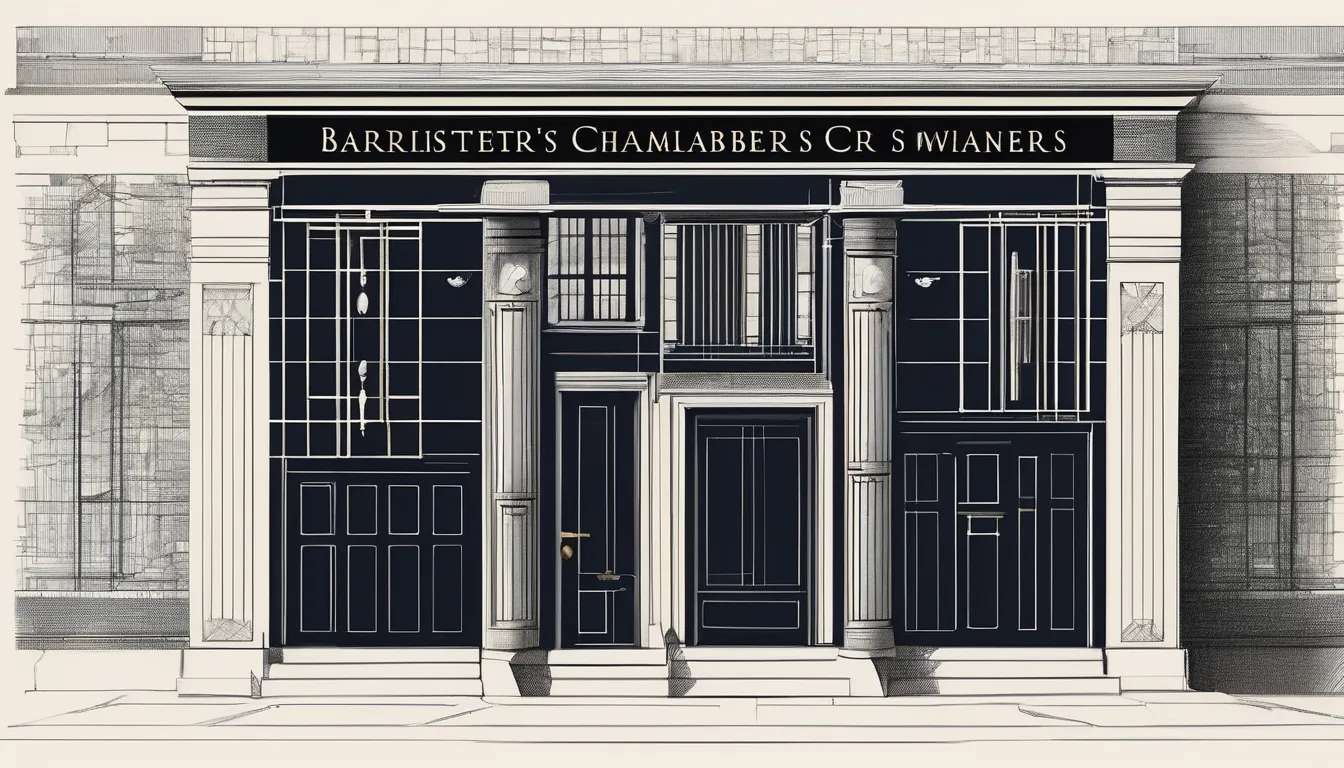As you navigate the intricate landscape of modern legal systems, the role of barristers stands out as one of paramount importance. Their expertise and advocacy skills are essential components in ensuring justice is served. But have you ever stopped to ponder the intricate dynamics of their collaboration with solicitors and the impact it has on legal outcomes? Stay tuned as we explore the multifaceted role of barristers and the nuances that shape the fairness barristers integrity of our legal framework.
Evolution of Barristers’ Role
As the legal landscape has evolved over time, the role of barristers has undergone significant changes to adapt to the shifting demands of modern legal systems. Barristers, traditionally known for their courtroom advocacy, now play multifaceted roles beyond just representing clients in court. Today, barristers are increasingly involved in providing legal advice, drafting legal documents, and participating in alternative dispute resolution mechanisms. This shift towards a more holistic legal practice reflects the need for barristers to offer all-encompassing legal services to their clients.
Moreover, the modern barrister isn’t only expected to possess exceptional advocacy skills but also to demonstrate proficiency in various areas of law. Specialization has become pivotal in the legal profession, prompting barristers to focus on specific practice areas to provide clients with expert advice.
Additionally, advancements in technology have transformed the way barristers work, with many embracing digital tools to enhance efficiency and streamline their legal practice.
Specialized Legal Expertise
To excel in today’s legal landscape, barristers must hone their skills in specialized areas of law. Specialization allows barristers to develop in-depth knowledge and expertise in specific legal fields, enhancing their ability to provide effective representation for their clients.
Whether it be in corporate law, criminal law, family law, or any other specialized area, barristers who focus on honing their skills in a particular field are better equipped to navigate the complexities of modern legal systems.
Specialized legal expertise enables barristers to stay abreast of the latest developments, precedents, and nuances within their chosen field. This specialized knowledge not only enhances their credibility and reputation but also allows them to provide tailored advice and representation to clients facing diverse legal issues.
Courtroom Advocacy Skills
Sharpening your courtroom advocacy skills is vital for barristers seeking to effectively represent their clients in legal proceedings. As a barrister, your ability to persuasively present arguments, cross-examine witnesses, and think on your feet can greatly impact the outcome of a case.
A key aspect of courtroom advocacy is the art of storytelling – being able to weave together evidence, legal principles, and your client’s narrative into a compelling and coherent argument.
Effective courtroom advocacy also involves mastering the rules of evidence and procedure to guarantee that your arguments are admissible and presented in a way that aligns with legal standards. Your demeanor, tone of voice, and body language can influence how your arguments are received by the judge and jury, making it essential to maintain professionalism and composure throughout proceedings.
Moreover, honing your ability to anticipate and respond to opposing counsel’s arguments can give you a strategic advantage in the courtroom.
Collaborating With Solicitors
Effective collaboration with solicitors is necessary for barristers maneuvering through the intricacies of legal cases. Working closely with solicitors allows barristers to gather critical evidence, prepare legal arguments, and guarantee a thorough approach to representing their clients in court. By maintaining open lines of communication, barristers and solicitors can strategize effectively, exchange essential information, and address any potential challenges that may arise during legal proceedings.
Collaboration between barristers and solicitors often involves sharing insights on case strategies, conducting thorough research, and coordinating efforts to present a unified front in court. Solicitors bring their expertise in legal matters, client interactions, and case preparation, while barristers leverage their advocacy skills, courtroom experience, and specialized knowledge of the law. This partnership enables legal professionals to deliver inclusive and effective representation that upholds the interests of their clients and promotes fair outcomes in legal disputes.
In the dynamic landscape of modern legal systems, the collaboration between barristers and solicitors plays a crucial role in achieving successful outcomes for clients and upholding the principles of justice.
Ensuring Fair Legal Outcomes
Ensuring fair legal outcomes is the primary goal of every legal professional involved in a case. As a barrister, your role in this process is crucial. You meticulously analyze evidence, craft persuasive arguments, and present them in court to ensure that justice is served. By upholding ethical standards and diligently representing your client, you contribute to the integrity of the legal system.
Your commitment to fairness extends beyond advocacy. You strive to ensure that all parties have equal access to justice and are treated with respect and impartiality. This includes engaging in rigorous cross-examination, challenging unreliable evidence, and upholding the principles of due process.
Furthermore, you play a pivotal role in educating clients about their legal rights and options, empowering them to make informed decisions. By guiding them through complex legal procedures and offering sound advice, you help level the playing field and foster trust in the legal system.
Frequently Asked Questions
Can Barristers Represent Clients in Non-Court Settings?
Yes, barristers can represent clients in non-court settings. They provide legal advice, draft legal documents, and negotiate on your behalf. Barristers’ expertise extends beyond the courtroom, offering valuable guidance in various legal matters outside of traditional court proceedings.
How Do Barristers Maintain Client Confidentiality?
To uphold client confidentiality, you guarantee all discussions stay private. You keep sensitive information secure, only sharing details with permission. By following strict ethical guidelines, you protect your clients’ privacy and build trust in your professional relationships.
Do Barristers Have to Disclose Conflicts of Interest?
You must disclose conflicts of interest to promote transparency. It’s essential for maintaining trust and upholding ethical standards. Failure to do so can jeopardize the integrity of the legal process and harm your client’s interests.
Are Barristers Allowed to Refuse Cases?
You can refuse cases as a barrister if you have a valid reason, such as a conflict of interest or lack of expertise. It’s important to uphold ethical standards and provide effective representation in the cases you accept.
What Role Do Barristers Play in Alternative Dispute Resolution?
In alternative dispute resolution, barristers act as mediators, negotiators, or arbitrators. They assist parties in reaching mutually acceptable solutions outside of court. Their expertise and advocacy skills contribute to the resolution process effectively and efficiently.
Conclusion
To sum up, as a barrister in modern legal systems, your specialized expertise, advocacy skills, and collaboration with solicitors are essential in ensuring fair legal outcomes. By staying updated on legal developments, offering tailored advice, and upholding ethical standards, you contribute greatly to the integrity and fairness of the legal system. Keep honing your skills, working closely with solicitors, and advocating effectively to continue making a positive impact in the legal field.




